- <a href="https://library.nhrc.or.th/en" aria-label="home" class="mainMenu"> <em class="fas fa-home"></em> </a>
-
About Us
ย้อนกลับ About Us<a href="https://library.nhrc.or.th/en/history" aria-label="menu" class="submenu-list" target="_self"> History </a> <a href="https://library.nhrc.or.th/en/structure" aria-label="menu" class="submenu-list" target="_self"> Organization </a> <a href="https://library.nhrc.or.th/en/vision" aria-label="menu" class="submenu-list" target="_self"> Vision/Mission </a> <a href="https://library.nhrc.or.th/en/award" aria-label="menu" class="submenu-list" target="_self"> Awards </a> <a href="https://library.nhrc.or.th/en/announce" aria-label="menu" class="submenu-list" target="_self"> Regulation/Notification </a> Organizational PolicyGallery<a href="https://library.nhrc.or.th/en/website-policy" aria-label="menu" class="submenu-list"> Website Policy </a> <a href="https://library.nhrc.or.th/en/website-security-policy" aria-label="menu" class="submenu-list"> Website Security Policy </a> <a href="https://library.nhrc.or.th/en/personal-information-protection-policy" aria-label="menu" class="submenu-list"> Personal Information Protection Policy </a> <a href="https://library.nhrc.or.th/en/privacy-policies" aria-label="menu" class="submenu-list"> Privacy Policy </a> <a href="https://library.nhrc.or.th/en/terms-of-service" aria-label="menu" class="submenu-list"> Terms of Service </a> <a href="https://library.nhrc.or.th/en/cookies-policy" aria-label="menu" class="submenu-list"> Cookies Policy </a><a href="https://library.nhrc.or.th/en/album-image" aria-label="menu" class="submenu-list"> Gallery </a> <a href="https://library.nhrc.or.th/en/gallery360" aria-label="menu" class="submenu-list"> 360° Picture </a>
-
Services
ย้อนกลับ Services<a href="https://library.nhrc.or.th/en/borrow-and-return" aria-label="menu" class="submenu-list" target="_self"> Borrowing Privileges </a> <a href="https://library.nhrc.or.th/en/service" aria-label="menu" class="submenu-list" target="_self"> Services </a> <a href="https://library.nhrc.or.th/en/flow-service" aria-label="menu" class="submenu-list" target="_self"> Workflow Services </a> <a href="https://library.nhrc.or.th/en/imfortable" aria-label="menu" class="submenu-list" target="_self"> Facilities </a> Forms<a href="https://forms.gle/syLmif2eKJ3kfA2g9" aria-label="menu" class="submenu-list" target="_blank"> Satisfaction Survey </a> <a href="https://library.nhrc.or.th/en/event" aria-label="menu" class="submenu-list" target="_self"> Activities </a> <a href="https://library.nhrc.or.th/en/plan" aria-label="menu" class="submenu-list" target="_self"> Directory </a><a href="https://library.nhrc.or.th/en/form-search" aria-label="menu" class="submenu-list"> Information Retrieval Request </a> <a href="https://library.nhrc.or.th/en/form-suggestions" aria-label="menu" class="submenu-list"> Information Resource Request </a>
-
Online Resources
ย้อนกลับ Online Resources<a href="https://library.nhrc.or.th/en/search?ctrl=kw&searchopt=&type=place&keyword=14" aria-label="menu" class="submenu-list" target="_self"> NHRC’s Collections </a> <a href="https://library.nhrc.or.th/en/search" aria-label="menu" class="submenu-list" target="_self"> Collections </a> Resources<a href="https://library.nhrc.or.th/en/network" aria-label="menu" class="submenu-list" target="_self"> Library Networks </a> <a href="https://library.nhrc.or.th/en/dictionary" aria-label="menu" class="submenu-list" target="_self"> Dictionary </a> <a href="https://library.nhrc.or.th/en/sourceresearch" aria-label="menu" class="submenu-list" target="_self"> Research/Dissertations </a> <a href="https://www.tci-thaijo.org/" aria-label="menu" class="submenu-list" target="_blank"> Thai Journals Online (ThaiJO) </a> <a href="https://ncx.dataxet.co/" aria-label="menu" class="submenu-list" target="_blank"> Online News </a> <a href="http://library.nhrc.or.th/document/Manual/APA.pdf" aria-label="menu" class="submenu-list" target="_blank"> Referencing Style Guide </a><a href="https://library.nhrc.or.th/en/law-of-human-rights" aria-label="menu" class="submenu-list"> Law of Human Rights </a> <a href="https://library.nhrc.or.th/en/international-human-rights" aria-label="menu" class="submenu-list"> International Human Rights </a> <a href="https://library.nhrc.or.th/en/international-human-rights-treaties" aria-label="menu" class="submenu-list"> International Human Rights Treaties </a> <a href="https://library.nhrc.or.th/en/national-human-rights-commissions" aria-label="menu" class="submenu-list"> Human Rights Commission </a> <a href="https://library.nhrc.or.th/en/judgment" aria-label="menu" class="submenu-list"> Judgment </a> <a href="https://library.nhrc.or.th/en/human-rights-online-resources" aria-label="menu" class="submenu-list"> Human Rights Online Resources </a> <a href="https://library.nhrc.or.th/en/un-and-affiliated-agencies" aria-label="menu" class="submenu-list"> UN and Affiliated Agencies </a>
-
Statistics
ย้อนกลับ Statistics<a href="https://library.nhrc.or.th/en/statistic/1" aria-label="menu" class="submenu-list" target="_self"> Onsite Visits </a> <a href="https://library.nhrc.or.th/en/statistic/2" aria-label="menu" class="submenu-list" target="_self"> Circulation Stat </a> <a href="https://library.nhrc.or.th/en/statistic/3" aria-label="menu" class="submenu-list" target="_self"> Reference Services </a> <a href="https://library.nhrc.or.th/en/statistic/4" aria-label="menu" class="submenu-list" target="_self"> Library Collections </a> <a href="https://library.nhrc.or.th/en/statistic/5" aria-label="menu" class="submenu-list" target="_self"> Visitors </a> <a href="https://library.nhrc.or.th/en/statistic/6" aria-label="menu" class="submenu-list" target="_self"> Website Stat </a> <a href="https://library.nhrc.or.th/en/statistic/7" aria-label="menu" class="submenu-list" target="_self"> Annual Reports </a>
-
Contacts
ย้อนกลับ Contacts<a href="https://library.nhrc.or.th/en/faq" aria-label="menu" class="submenu-list" target="_self"> FAQ </a> <a href="https://library.nhrc.or.th/en/opening-hours-close-calendar" aria-label="menu" class="submenu-list" target="_self"> Opening Hours/Close Calendar </a> <a href="https://library.nhrc.or.th/en/contacts-us" aria-label="menu" class="submenu-list" target="_self"> Contacts </a>
-
My Account
ย้อนกลับ My Account<a href="https://library.nhrc.or.th/en/membership-application" aria-label="menu" class="submenu-list" target="_self"> Membership </a> <a href="https://library.nhrc.or.th/en/member/login" aria-label="menu" class="submenu-list" target="_self"> Login </a>
The human rights revolution : an international history
| Category | Call number | Location | Status | |
|
JC571 H9181 2012 c.1 |
General Books Zone | On shelf | Reserve | |
|
JC571 H9181 2012 c.2 |
General Books Zone | On shelf | Reserve |
| ISBN |
9780195333145 (pbk.)
|
| Call Number |
JC571 H9181 2012
|
| Title |
The human rights revolution : an international history / edited by Akira Iriye, Petra Goedde, and William I. Hitchcock
|
| Imprint |
Oxford : Oxford University Press, 2012.
|
| Physical |
xiv, 353 p. ; 24 cm.
|
| Series Name | |
| Contents Note |
Introduction:^tHuman rights as history / Akira Iriye and Petra Goedde
--The recent history of human rights / Kenneth Cmiel --The Holocaust and the human rights revolution : a reassessment / G. Daniel Cohen --Constitutionalizing human rights : the rise and rise of the Nuremberg principles / Elizabeth Borgwardt --Human rights and the laws of war : the Geneva Convention of 1949 / William I. Hitchcock --Grams, calories, and food : languages of victimization, entitlement, and human rights in occupied Germany, 1945-1949 / Atina Grossmann --Are women human? : the UN and the struggle torecognize women's rights as human rights / Allida Black --Imperialism, self-determination, and the rise of human rights / Samuel Moyn --The first right : the Carter Administration, Indonesia, and the transnational human rights politics of the 1970s / Brad Simpson --Anti-torture politics : Amnesty International, the Greek junta, and the origins of the human rights boom in the United States / Barbara Keys --From the center-right : Freedom House and human rights in the 1970s and 1980s / Carl J.Bon Tempo --For our Soviet colleagues : scientific internationalism, human rights, and the Cold War / Paul Rubinson --Principles overwhelming tanks : human rights and the end of the Cold War / Sarah B. Snyder --he right to bodily integrity : women's rights as human rights and the international movement to end female genital mutilation, 1970s-1990s / Kelly J. Shannon --Is history a human right? : Japan's and Korea's troubles with the past / Alexis Dudden --Approaching the Universal Declaration of Human Rights / Mark Philip Bradley. |
| Summary |
Between the Second World War and the early 1970s, political leaders, activists, citizens, protestors. and freedom fighters triggered a human rights revolution in world affairs. Stimulated particularly by the horrors of the crimes against humanity in the 1940s, the human rights revolution grew rapidly to subsume claims from minorities, women, the politically oppressed, and marginal communities across the globe. The human rights revolution began with a disarmingly simple idea: that every individual, whatever his or her nationality, political beliefs, or ethnic and religious heritage, possesses an inviolable right to be treated with dignity. From this basic claim grew many more, and ever since, the cascading effect of these initial rights claims has dramatically shaped world history down to our own times. The contributors to this volume look at the wave of human rights legislation emerging out of World War II, including the UN Declaration of Human Rights, the Nuremberg trial, and the Geneva Conventions, and the expansion of human rights activity in the 1970s and beyond, including the anti-torture campaigns of Amnesty International, human rights politics in Indonesia and East Timor, the emergence of a human rights agenda among international scientists, and the global campaign female genital mutilation. The book concludes with a look at the UN Declaration at its 60th anniversary. Bringing together renowned senior scholars with a new generation of international historians, these essays set an ambitious agenda for the history of human rights. -- Publisher description.
|
| Subject | |
| Subject | |
| Keyword | |
| Coorperative Author | |
| Coorperative Author | |
| Coorperative Author | |
| Content |
| LEADER : 00000nab 2200000uu 4500 |
| 008 181107s2012||||enk 000 0 eng d |
| 020 ^a9780195333145 (pbk.) |
| 050 00^aJC571^bH9181 2012 |
| 245 04^aThe human rights revolution :^ban international history /^cedited by Akira Iriye, Petra Goedde, and William I. Hitchcock |
| 260 ^aOxford :^bOxford University Press,^c2012. |
| 300 ^axiv, 353 p. ;^c24 cm. |
| 490 1 ^aReinterpreting history |
| 504 ^aIncludes bibliographical references and index |
| 505 00^aIntroduction:^tHuman rights as history /^rAkira Iriye and Petra Goedde --^tThe recent history of human rights /^rKenneth Cmiel --^tThe Holocaust and the human rights revolution : a reassessment /^rG. Daniel Cohen --^tConstitutionalizing human rights : the rise and rise of the Nuremberg principles /^rElizabeth Borgwardt --^tHuman rights and the laws of war : the Geneva Convention of 1949 /^rWilliam I. Hitchcock --^tGrams, calories, and food : languages of victimization, entitlement, and human rights in occupied Germany, 1945-1949 /^rAtina Grossmann --^tAre women human? : the UN and the struggle torecognize women's rights as human rights /^rAllida Black --^tImperialism, self-determination, and the rise of human rights /^rSamuel Moyn --^tThe first right : the Carter Administration, Indonesia, and the transnational human rights politics of the 1970s /^rBrad Simpson --^tAnti-torture politics : Amnesty International, the Greek junta, and the origins of the human rights boom in the United States /^rBarbara Keys --^tFrom the center-right : Freedom House and human rights in the 1970s and 1980s /^rCarl J.Bon Tempo --^tFor our Soviet colleagues : scientific internationalism, human rights, and the Cold War /^rPaul Rubinson --^tPrinciples overwhelming tanks : human rights and the end of the Cold War /^rSarah B. Snyder --^the right to bodily integrity : women's rights as human rights and the international movement to end female genital mutilation, 1970s-1990s /^rKelly J. Shannon --^tIs history a human right? : Japan's and Korea's troubles with the past /^rAlexis Dudden --^tApproaching the Universal Declaration of Human Rights /^rMark Philip Bradley. |
| 520 ^aBetween the Second World War and the early 1970s, political leaders, activists, citizens, protestors. and freedom fighters triggered a human rights revolution in world affairs. Stimulated particularly by the horrors of the crimes against humanity in the 1940s, the human rights revolution grew rapidly to subsume claims from minorities, women, the politically oppressed, and marginal communities across the globe. The human rights revolution began with a disarmingly simple idea: that every individual, whatever his or her nationality, political beliefs, or ethnic and religious heritage, possesses an inviolable right to be treated with dignity. From this basic claim grew many more, and ever since, the cascading effect of these initial rights claims has dramatically shaped world history down to our own times. The contributors to this volume look at the wave of human rights legislation emerging out of World War II, including the UN Declaration of Human Rights, the Nuremberg trial, and the Geneva Conventions, and the expansion of human rights activity in the 1970s and beyond, including the anti-torture campaigns of Amnesty International, human rights politics in Indonesia and East Timor, the emergence of a human rights agenda among international scientists, and the global campaign female genital mutilation. The book concludes with a look at the UN Declaration at its 60th anniversary. Bringing together renowned senior scholars with a new generation of international historians, these essays set an ambitious agenda for the history of human rights. -- Publisher description. |
| 650 0^aHuman rights^xHistory 0^aHuman rights^xPolitical aspects^xHistory |
| 653 ^aNew Arrivals 04-2021 |
| 700 1 ^aIriye, Akira 1 ^aGoedde, Petra,^d1964- 1 ^aHitchcock, William I |
| 856 40^3Content^uhttp://library.nhrc.or.th/ulib/document/Content/T10156.pdf |
| 917 ^aKN :^c1,406 ^aKN :^c1,260 |
| 955 ^a2 copies |
| 999 ^anopparat |
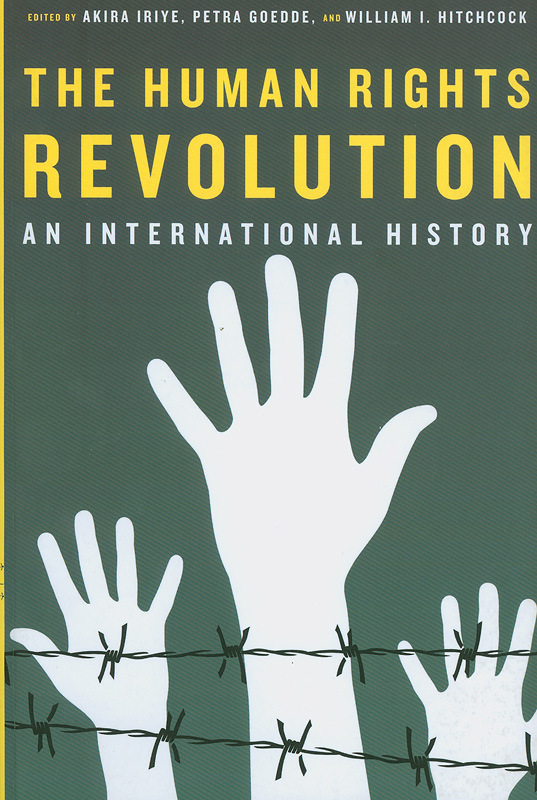

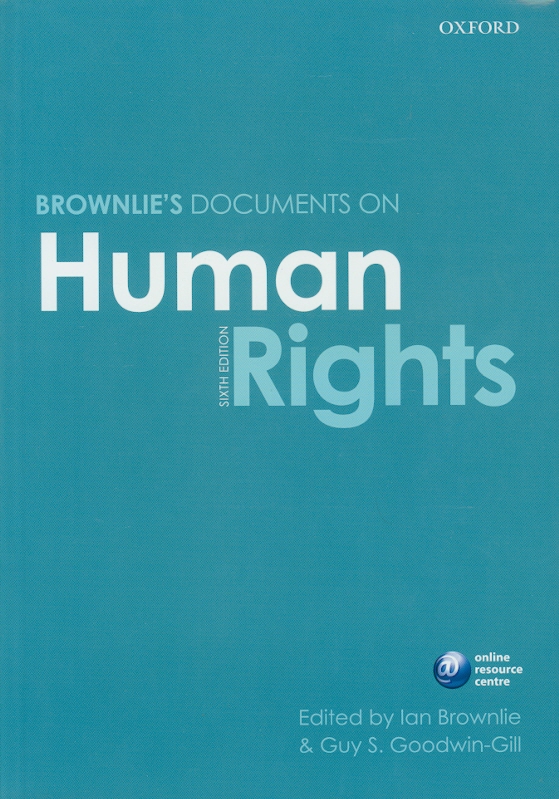
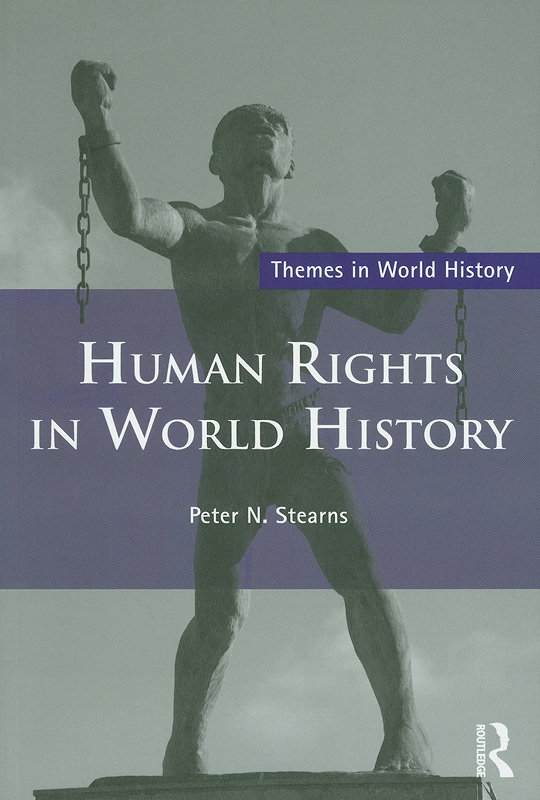
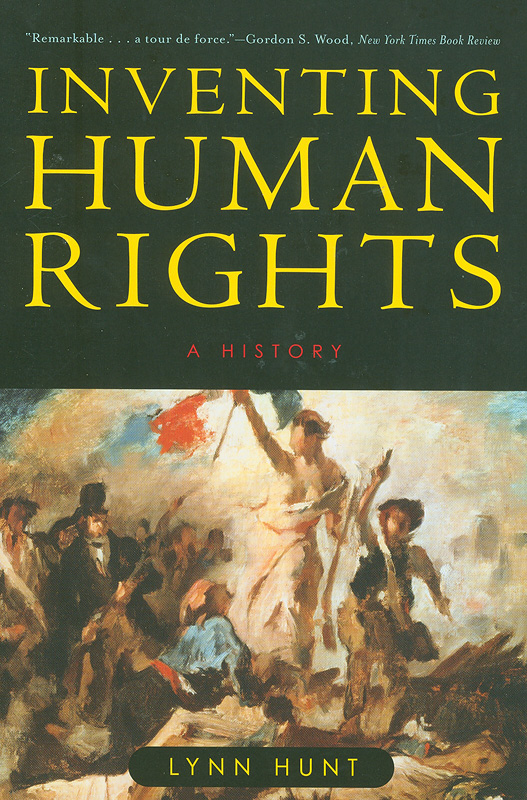
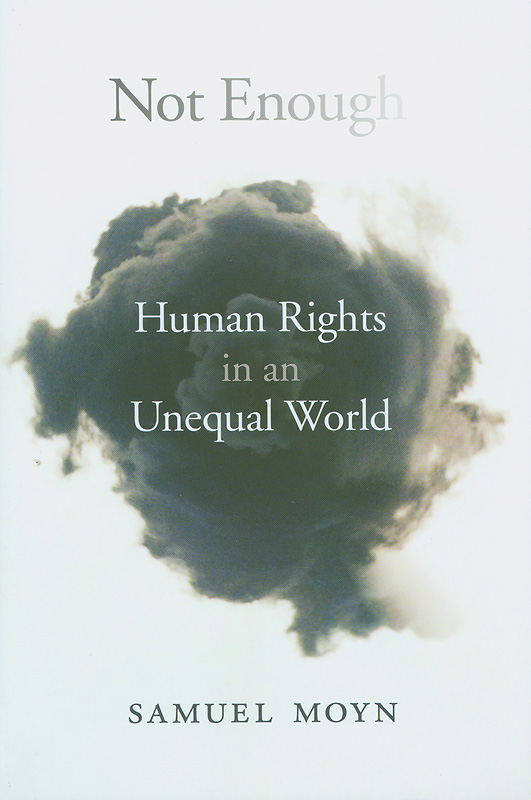
before adding tags or comments.